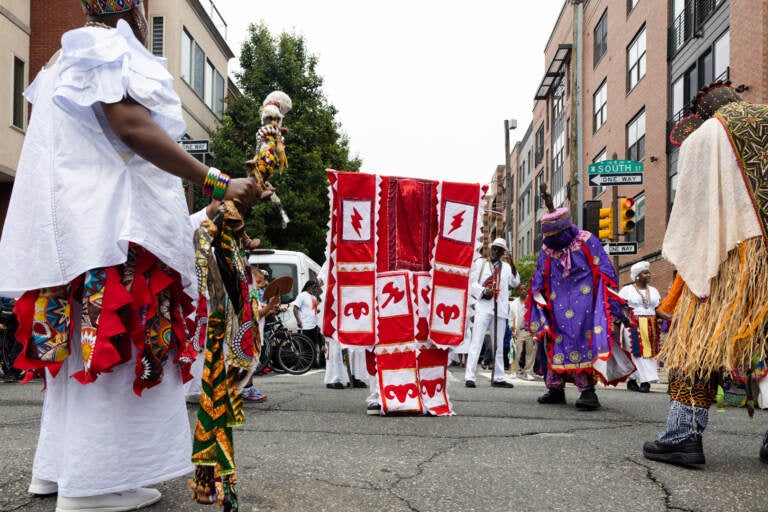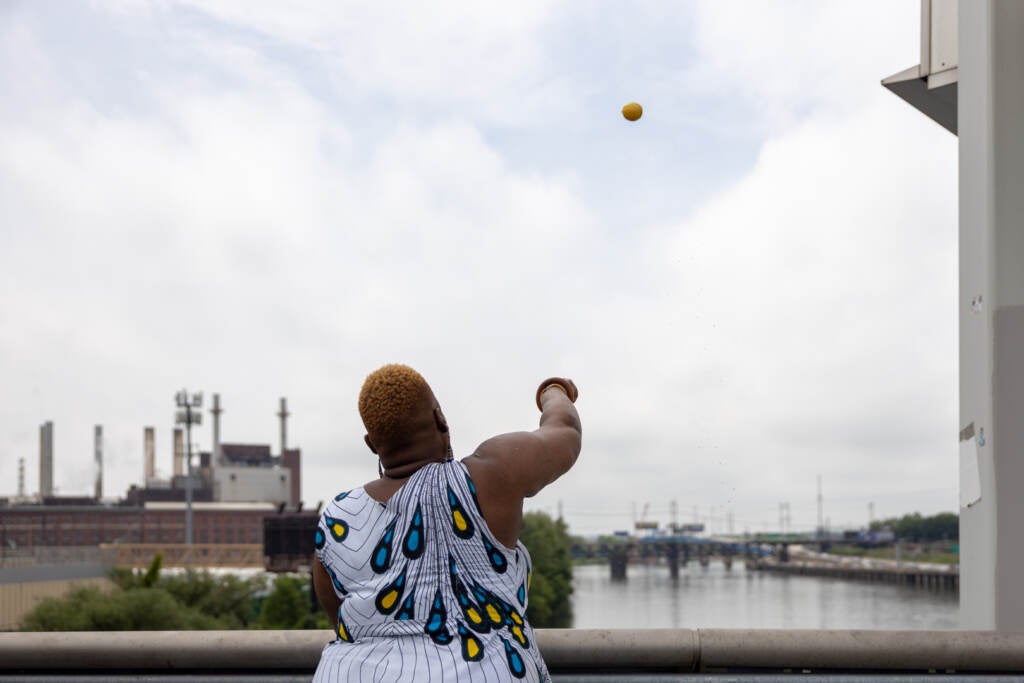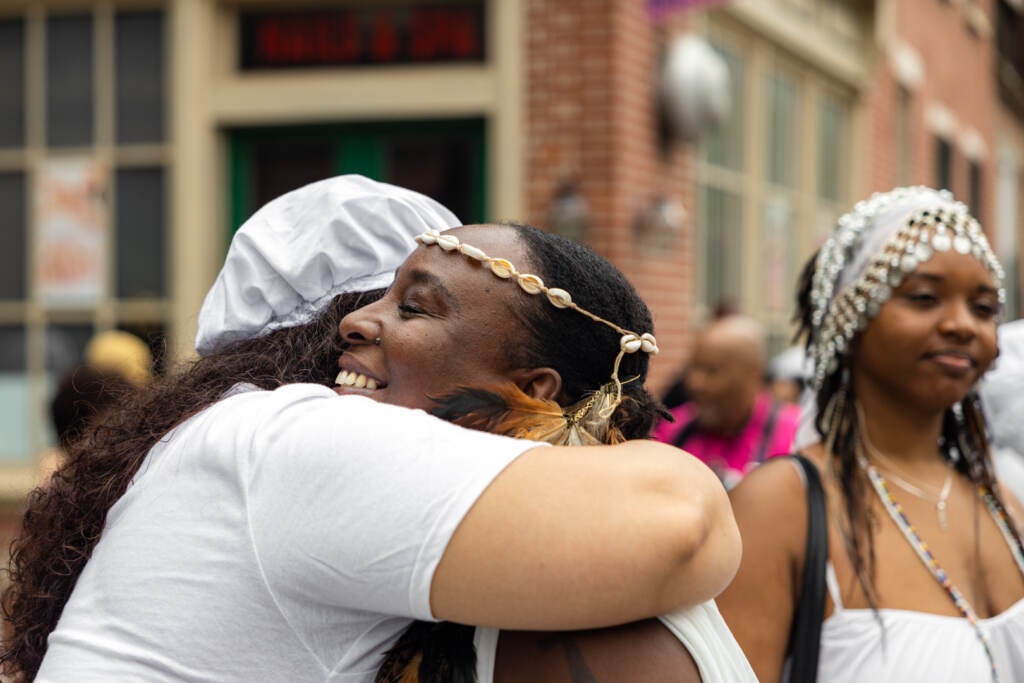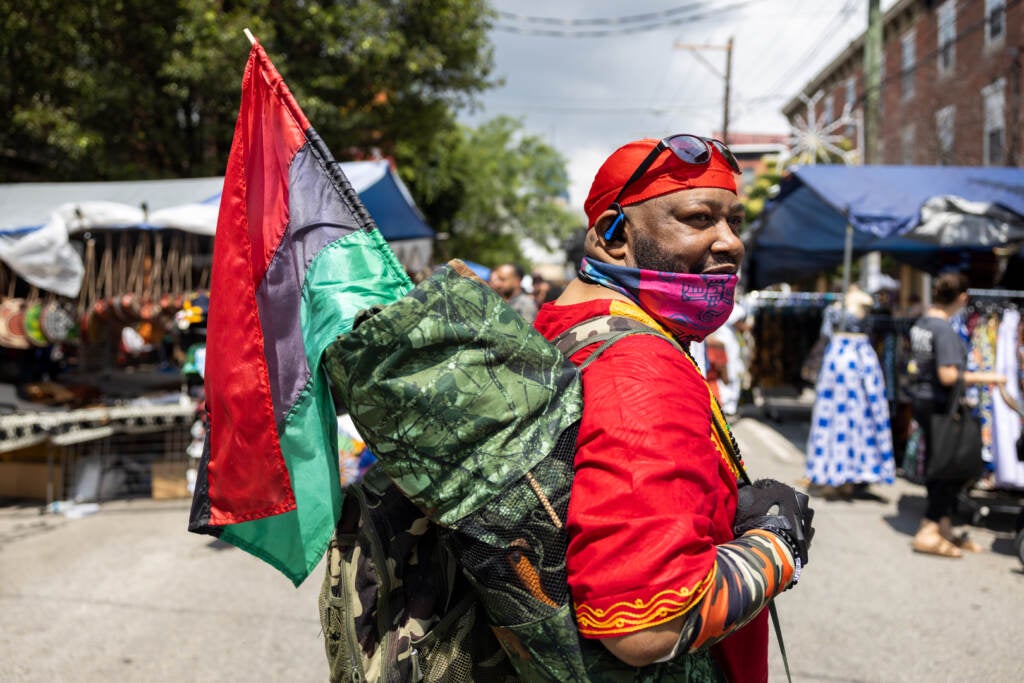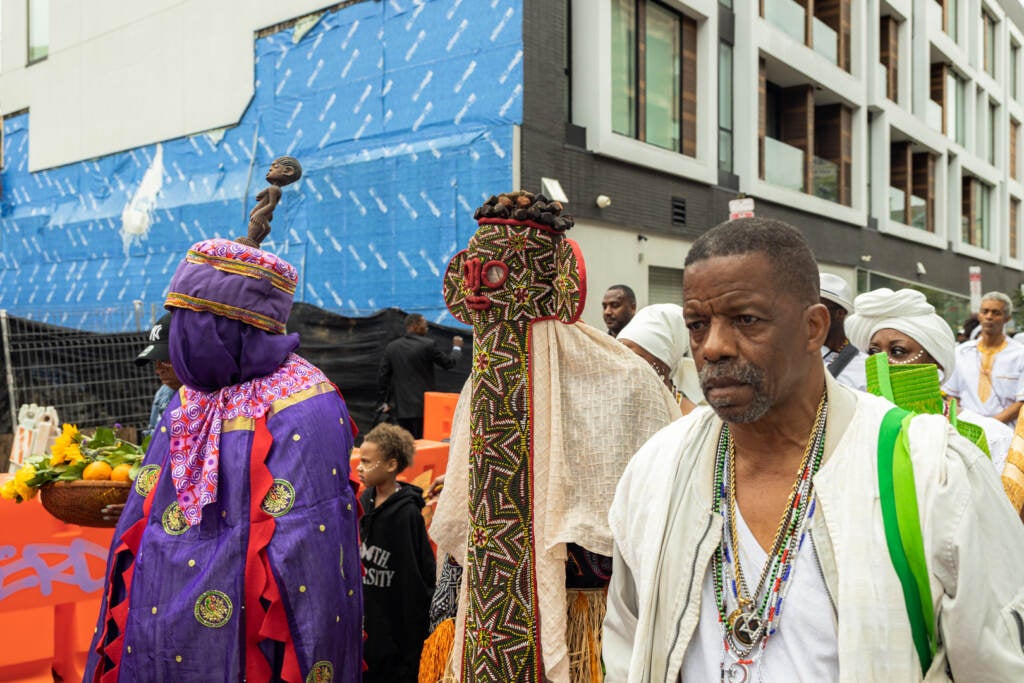Odunde festival returns to Philadelphia to celebrate African heritage
Performers dance on South Street during the Odunde procession.
A small crowd of paraders paused on the South Street Bridge Sunday to offer gifts to Oshun, the river goddess in the Yoruba belief system of West Africa. A moment of prayer preceded the throwing of offerings into the river: whole pineapples, honey-drizzled oranges, candy and streams of wine.
The ritual is central to the Odunde festival, the Yoruban New Year celebration that has been an anchor for Philadelphia’s African diaspora community since 1975. The in-person event returned this year after a two-year break due to the COVID-19 pandemic.
Nikki Powerhouse throws fruit into the Schuylkill River as an offering to Oshun during the 2022 Odunde Festival.
“We’re so excited to be back,” said festival CEO
Oshunbumi Fernandez–West, who carries on the tradition in place of
her mother, Lois Fernandez. “Philadelphia has been going through a lot, but Odunde has always been a peaceful and safe event.”
Some Philadelphians are feeling
on edge about public events in the wake of
a mass shooting on South and 3rd streets on June 5. Despite that — and a shaky weather forecast — a high-energy crowd came out to peruse hundreds of food and art booths, watch African dance troupes, and catch up with friends at the 15-block e
Two women lead the Odunde procession onto the South Street Bridge.
As of Sunday afternoon, organizers didn’t have a ballpark estimate on attendance, but said in past years the event has drawn roughly half-a-million people and made a $28 million impact on the city. It bills itself as the largest African American street festival in the country.
Two women hug during the Odunde Festival in Philadelphia.
Tracey Rosa attended the festival with an organization called Black Philadelphia, which strives to create a safe space for people to talk and explore their heritage.
“We’re all one people,” she said. “We all need that connection, we all need each other.”
She has attended Odunde before but it was a first for her 12-year-old daughter, who is both African American and Italian. They both wore African dashikis — Tracey in purple and Alaana in green.
“It’s representation, it’s who we are,” Tracey Rosa said. “I wanted [my daughter] to experience her African culture as her father takes her to experience her Italian culture.”
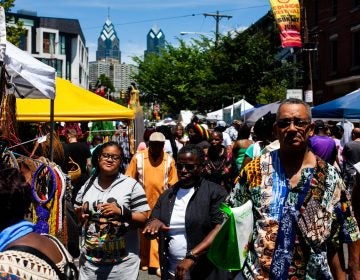
Roughly 41% of Philadelphians are Black or African American, according to the U.S Census Bureau. There are an estimated 50,000 African immigrants in the Philadelphia region, mostly from Nigeria, Liberia, Ethiopia, and Ghana according to the nonprofit
Global Philadelphia Association.
Odunde began June 8, with four days of educational and networking events designed to bring Philadelphians together to celebrate African, Caribbean, and African American culture.
John King walks through the Odunde Festival with his Pan-African, also known as the Afro-American, flag.
Nicole Francis, who is Bahamian and Jamaican, said moving from Florida to Philadelphia recently has offered her more opportunities to introduce her three sons to their heritage. Her family drove about an hour to get to the Sunday event.
“We want them to learn their background, their roots” she said. “Especially because we’ve had some unrest and some negativity in the past.”
She was hopefuI that more awareness of Black history and culture could help rebuild a sense of community and reduce
the violence that’s been plaguing the city. Some
scholars have argued that gun violence prevention initiatives should include Black-led cultural education and cultivate ethnic pride.
“I think that’s one thing that could help,” she said.
Her sons expressed excitement around being at the festival.
“In social studies we learned about slavery for a little bit and that’s all I really know,” said Xavier, 11. “In my opinion I feel like you really don’t learn much about African culture.”
During the procession, community leaders discussed the importance of knowing one’s ancestors and traditions as an antidote to the “crisis” and “chaos” happening today.
A performer in the Odunde procession walks towards the South Street Bridge for the offering.
Tracy El has been attending the Odunde festival for the last 15 years. She recently started learning about her family’s history in Georgia, dating back to 1865.
“It helps to show where you belong,” she said. “You need that affirming spirit in yourself. I keep an ancestor altar, and it keeps me grounded and inspired and motivated every day.”







